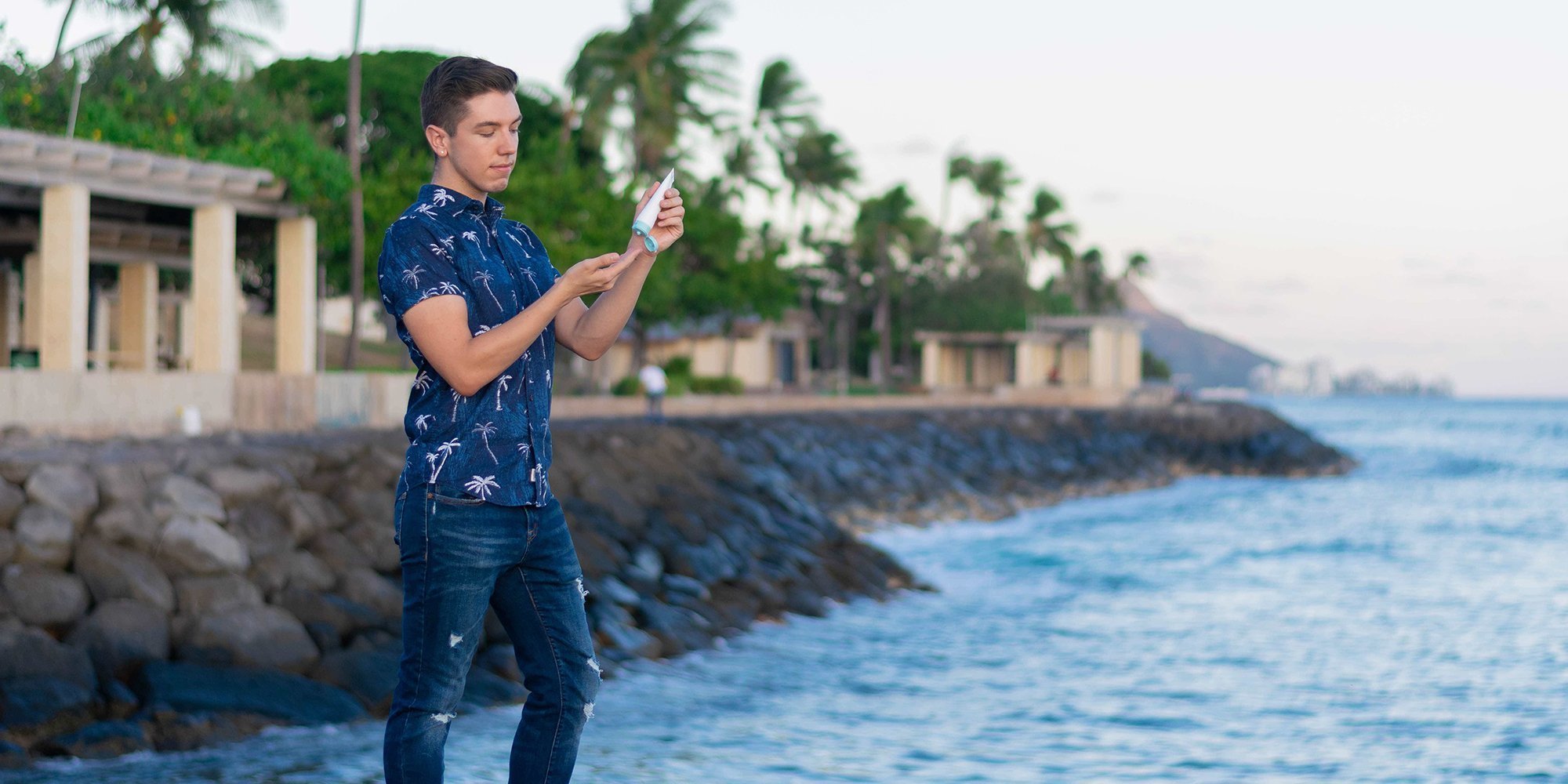
Skincare Expert Hyram Yarbro Put Drunk Elephant On Blast To Urge It And Other Brands To Respect Customers And Influencers
Hyram Yarbro is often labeled a clean beauty influencer. He’s not against that label, but it’s not totally accurate to describe him. A take-no-crap influencer would be a more precise characterization. “I really believe that, if skincare companies are going to be selling you products claiming they have the best ingredients available, they should be only putting the ingredients proven to be beneficial for your skin in those products,” says Yarbro. “I don’t think it’s right that companies choose to formulate with ingredients that aren’t beneficial.” He’s not only disapproving of brands filling their bottles with crap, he’s opposed to them treating customers and influencers like crap, too.
Yarbro felt compelled to use his platform to air grievances about Drunk Elephant after he caught wind of actions by the skincare brand, which he’d previously been a huge fan of, toward customers and influencers he deemed unacceptable. For example, it deleted a customer’s critical comment on Instagram and blocked that customer. On Sunday, Yarbro posted a video entitled “No More Drunk Elephant.” revealing why he’s no longer using the brand’s products. In the days since the video went live, it’s garnered almost 130,000 views and placed Yarbro at the center of a growing discussion about the behavior of beauty brands. Beauty Independent talked to the YouTuber about his approach to content, the purpose of his video critiquing Drunk Elephant, the response he’s received from the brand, and whether he’d call out another beauty company.
Where are you from?
I grew up in a town in Arizona called Paulden. It’s very small and spread out. We had a 40-acre backyard, and that’s how close our neighbors were to us. It’s pretty country. I grew up on a cowboy ranch. There were aspects of it I absolutely loved. I was constantly outside connecting with nature. It was an environment that a kid would really enjoy. There were lots of ways to play. At the same time, social interaction was extremely limited, so that made it difficult. I would never want to live there now, but it taught me the principle of hard work. Growing up on a ranch where you have to work with cattle and horses definitely teaches you hard work. No matter what challenges I face working on projects now, I always in my mind compare it to work on the ranch, and I’m humbled very quickly.
You live in Honolulu now. Why did you move there?
Originally, I had plans to be an English teacher in Jordan and, right around the time I was supposed to move there, there were extreme conflicts going on in the country. I didn’t feel it was best for my safety, but I didn’t want to stay in the town I grew up in. So, I thought, “What’s the most culturally diverse place I can go in the U.S.?” I wanted a cultural experience while still being in the country. Hawaii was the best place I could think of. Within a month of making that decision, I flew out here. I had never been to Hawaii. It posed a challenge, but I think it’s good for everyone to have that experience of wiping the slate clean, starting brand new and redefining yourself.
Where does your interest in skincare come from?
I wasn’t exposed to beauty or skincare at all until I moved to Hawaii when I was 19. I started noticing problems surfacing on my skin like fine lines and acne issues. I got into makeup first and the world of makeup artistry and, from there, started to learn about skincare. As I learned about skincare, I learned about all the knowledge and education there was within the world of skincare. Ever since, I’ve been passionate about skincare and, even more so, educating people on complicated skincare topics in a simple way.
Why did you start creating YouTube videos?
I had gotten a job as a makeup artist at Saks Fifth Avenue. That job offered me a lot of free time because it wasn’t that busy. During that free time, I started looking at ingredient lists. I saw products that were being sold at up to $1,200 each—moisturizers, serums face masks—and it just baffled me. I was like, “What exactly is it about this product that makes it so special that people are willing to drop thousands of dollars?” My mindset was that it has to be the ingredients, but, as I began looking through ingredients, I started to notice inconsistencies between them and what I was reading in scientific articles on the best ingredients for your skin. That’s when I realized that people buy skincare the majority of the time primarily on trust. They don’t know what makes the product work, and they rely on the person who is selling or recommending it to them.
When I saw that, I thought to myself, “People really need to understand what works and what doesn’t so they aren’t potentially wasting thousands of dollars on things that won’t work.” I started to educate myself and, while educating myself, I found it was difficult to find good consumer information about skincare because it was all in hard-to-read scientific research papers. And I was having a hard time finding influencers talking about skincare in the way they talk about makeup. I said to myself, “I really should start a YouTube channel to make it easier for people to understand what skincare is good and what skincare isn’t so they can make better decisions about their skincare purchases.”
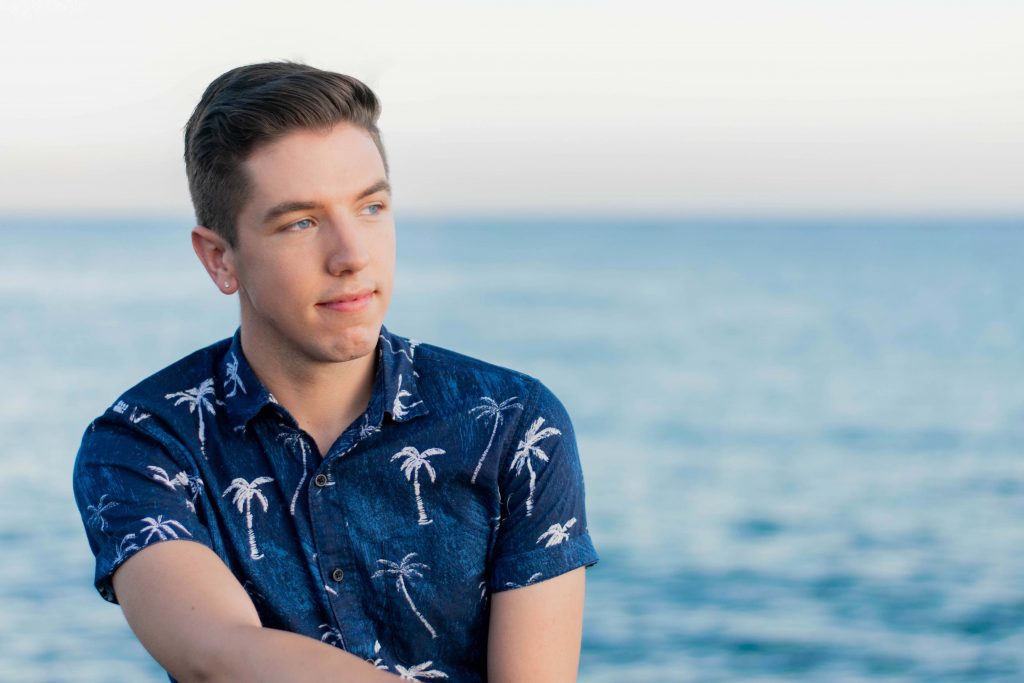
During the summer, the number of subscribers to your YouTube channel, now at about 60,000, went from 4,000 to 25,000. What led to the increase?
It was from two videos that I posted in one week. The first one was a video about Kylie Skin. Kylie Jenner had just announced that she was coming out with a skincare line and released an ingredient list for all the products. I made a video about her walnut scrub, how I completely disagreed with the formula and how there are much better options for exfoliation available with new skincare technology. With the first week, it got over 100,000 views. For a channel that had just reached 4,000 subscribers, that was fast. Later that week, I made a video on Emma Chamberlain for a series on my channel where I make skincare routines for YouTubers in a fun way, but I also give them advice. That video also received a lot of attention and pushed my channel to grow. When people come up to me in public, nine times out of 10, they’ve found me through the Kylie Skin video. It has over 300,000 views now.
What do these videos say about what your audience wants to hear from you?
My audience really craves honesty. When it comes to my videos, I’m more often than not brutally honest. I call out the brands for using certain ingredients, but, at the same time, I do it in a playful way, so it’s not taken as a harsh critique. It’s really hard to find people who are very transparent about what they like and don’t like in products. It’s really no secret that, in the influencer industry, it’s easy to be bought, and it’s hard to find influencers that do their research on products. I do that as much as I can. My subscribers recognize that I’m trying to be as honest and transparent as possible. Therefore, trust is introduced into the relationship. The trust between me and my subscribers is very important.
Do you still work at Saks Fifth Avenue?
I no longer work at Saks. Once I realized more and more about the brands that they offer, I felt it didn’t reflect my personal views on beauty. When it comes to skincare formulations, a lot of companies will include additives in their products that aren’t necessary to the formulas, whether that be fillers, fragrance or other ingredients that help sensorially, but don’t offer benefits or they could have detrimental effects on the skin. I don’t think brands should be formulating with those things. Extreme luxury skincare typically has a lot of added fragrance and silicones that make products feel and smell very nice, but aren’t necessarily doing a lot for your skin. I believe there’s a purpose for every ingredient out there, but that doesn’t necessarily mean it should be in your product, especially at the high price points these brands charge. A lot of people would refer to me as a clean beauty YouTuber, but I hesitate with that term. I’m the first to say that natural skincare doesn’t mean better. My stance is to be as scientifically-based as possible. I rarely rely on my opinion. I rely on what experts in the industry conclude about formulations.
I was offered a position by one of my favorite brands in the world, Youth To the People. I talked about them a lot on my social media platforms and was able to make a connection there. It turned into an opportunity to work remotely for them as an educational trainer. A hiring condition I required is that I be extremely transparent with my audience about where I work. I’ve received nothing but support from my subscribers. There are certain products from the line that I absolutely love, and there are products that don’t work for me that I don’t really talk about. It hasn’t changed the relationship with my YouTube channel.
You have been strongly associated with Drunk Elephant. How did that happen?
Drunk Elephant was one of the first skincare brands that I became familiar with and, right away, I fell in love with the products’ formulations. I really agreed with the stance Drunk Elephant takes in regard to which ingredients they want and which they don’t. From the very beginning of my channel, I was recommending products from Drunk Elephant. It got to the point where, in every single video, I was talking about a Drunk Elephant product. My subscribers noticed, and it became an attribute of my channel. In comments, you will see people joking about how I always recommend Drunk Elephant. When you would search Hyram on YouTube, the first thing that came up after it was Drunk Elephant. The brand was very synonymous with my YouTube channel and personal brand.
Drunk Elephant’s “Suspicious 6” philosophy avoiding six classes of ingredients is controversial. What do you think of it?
Definitely, it’s controversial because Drunk Elephant takes a strong position against those ingredients. For me, it’s never been that I absolutely hate silicones or I absolutely hate every type of essential oil, but I felt I could trust the brand to not include potentially risky ingredients that I don’t want in my formulas, particularly fragrance and essential oils. I am sensitive to those, and I am very picky. With other brands, you have to search almost every ingredient to make sure that none are potentially detrimental.
When did you start to question your support of Drunk Elephant?
Over the past year, there were a few things that came up in regard to their customer service that concerned me. I took it with a grain of salt, though. Negative experiences with a brand tend to get more attention online than positive experiences do. I tried not to let it affect my overall view. Then, I started to notice multiple instances of bad customer service and issues with comments on Drunk Elephant’s social media. Finally, there were incidents with influencers. It was just within the last three months that I started to notice these things and started to doubt my position on Drunk Elephant.
Have you had any problems with the brand personally?
No, I really haven’t. My experiences with the brand have been positive. Even in the video, I said the reasons why I’m not using Drunk Elephant anymore aren’t because of my personal experiences, but because of the experiences of others I’m empathetic to.
Was there a tipping point that pushed you to reconsider Drunk Elephant?
It was when an influencer that I personally know had an experience with Drunk Elephant. This person was encouraging positive feedback for brands by accepting questions and comments on their Instagram and, then, reposting them on their Stories so brands could see the feedback, internalize it and make positive changes. This person reposted a concern one of their followers had about Drunk Elephant, and Drunk Elephant took this person off of their PR list and responded in an unkind way. That was my final straw.
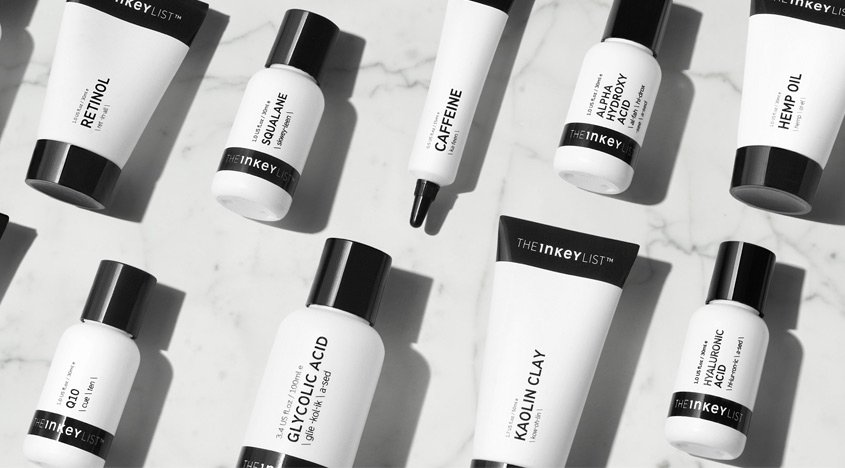
What were you feeling before you created video that took Drunk Elephant to task?
I felt really scared. I had planned three weeks prior to filming the video to make it, but I was so scared. I kept calling my social media manager about it, telling my manager I was so scared. I expected to receive a backlash because Drunk Elephant is such a well-loved brand, and I have supported them so much on my channel.
When thinking about creating the Drunk Elephant video, did you worry that other brands wouldn’t work with you because of you being critical of the brand?
Yes, that was a concern at first, but I believe people connect with authenticity, and my hope was that people would truly understand my concern and the moral crossroad I was in. I tried to approach the topic in the most professional way possible and, if nothing else, I hoped that my video would help other brands learn what to do and what not to do in regards to customer relations. If brands aren’t willing to empathize with my situation, I likely wouldn’t want to work with them anyway.
What did you want to say in the video?
I had planned out everything I wanted to say, clearly touching on three main points. I wanted to highlight Drunk Elephant’s treatment of customers on social media and in customer service. I wanted to touch upon their treatment of influencers and, lastly, the position of superiority they started to take within the clean beauty movement as well as the skincare industry in general.
Why was it important for you to make the video?
It was important for two reasons. First of all, my personal brand was so closely aligned with Drunk Elephant that for me to stop using them and never talk about them on my channel anymore would almost be a slap in the face to my subscribers. Through my videos, I was selling tens of thousands of dollars worth of skincare for a brand that I no longer supported. I didn’t feel it was fair to my subscribers to not be honest about why I wasn’t using the brand anymore. In addition, within the influencer industry, I noticed a pretty significant fear of speaking up against Drunk Elephant and the way they have treated customers. I noticed that any type of feedback was quickly shut down or there was some form of retaliation and, because of that, there was a culture of fear among the influencers. I didn’t feel that was right.
I felt that talking about it on my channel would be a helpful wake-up call to the brand. They can’t behave in this way without there being a consequence. I hope my video would provide subjective feedback in a point-by-point, logical way so they would really internalize that feedback and make changes within the company. When I made the video, I really was not even sure if Drunk Elephant was going to see my video. The main reason I made the video was for my subscribers.
Have you heard from Drunk Elephant since the video posted?
Yes, I have heard from the company since. They reached out to me via social media, and I’m interested to see what the conversation with them will be like, but it’s still in the works. I’m not sure where it will go. I’m very open. My intent is truly to help the company improve.
Do you think you could rekindle your connection to the brand?
Honestly, I’m not sure. Regardless of how they treat me, I care more about how they treat their customers. That’s the number-one priority. Actions speak louder than words. If they aren’t treating their customers with the utmost respect, I still won’t be supporting them, but I believe in forgiveness. I believe that people and companies can change.
What lessons should other brands glean from this episode?
Primarily, it’s about how you should be responding to your customers. I think Drunk Elephant provides a good example of what not to do in regard to your social media presence, and interacting with followers and customers. I also hope that companies will recognize this as feedback and as a lesson, and open their mind to really understand where consumers and influencers are coming from. They can be a better brand because of what we are saying. They shouldn’t write it off as hate or harsh criticism when what we actually want is what is best for the brand and us.
Do you think you will call out other brands’ wrongdoings?
My goal is to not be the YouTuber that calls out every brand for doing something bad. I err on the side of slowly distancing myself, not talking about them on my channel and moving on. I don’t want to create that level of drama. But, because of the position I was in with Drunk Elephant, it was appropriate at this time. In the future, I have no desire to create exposé-style videos.
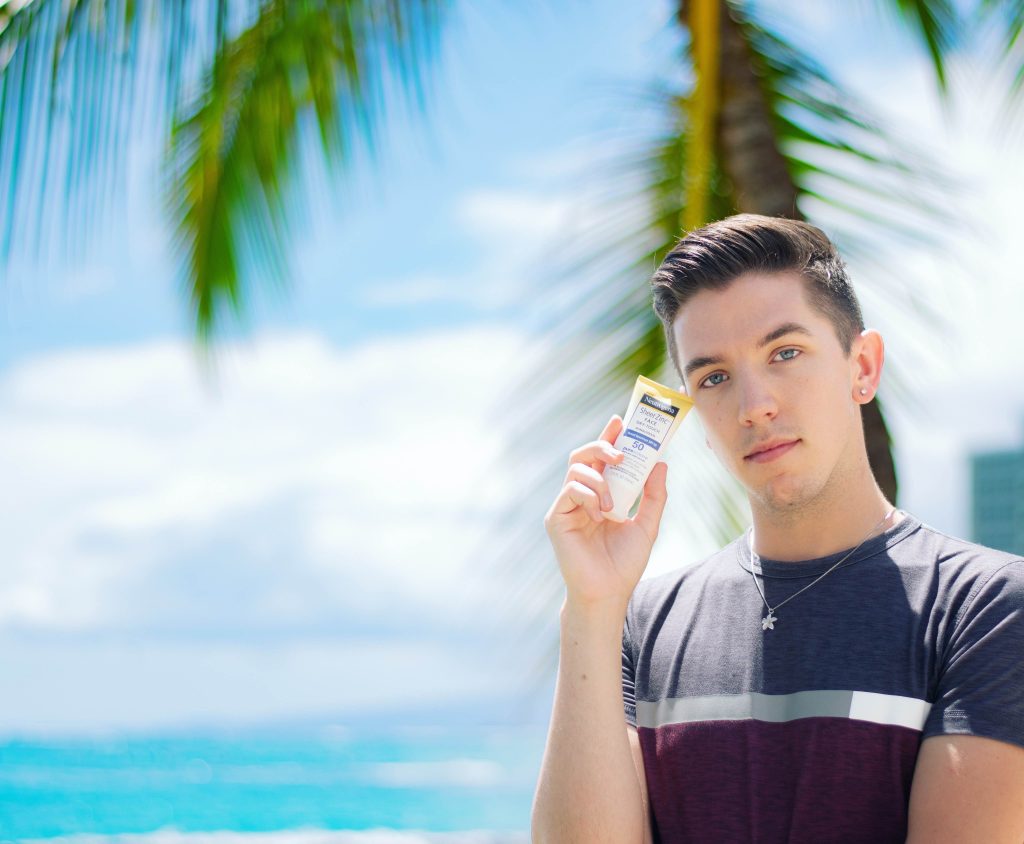
Tell us about the Skin Care Junkie community you’re building.
Skin Care Junkie is a community I built in collaboration with my YouTube channel for anyone who is interested in pursuing more education about skincare. It’s similar to SkincareAddiction on Reddit, but more intimate and organized. On the Skin Care Junkie platform, people are able to share their concerns, product reviews and sales or events. I really wanted to create a community of people that can really be there for each other in regard to skincare. I didn’t have anybody teach me about skincare, and I want to make information easier to access and consume.
What are some goals you have for your beauty influencer career?
I have been exploring the possibilities around creating a brand. There are certain things on the market that haven’t been offered yet, and I would love to be the facilitator for them. I want my channel to grow. As much as I love skincare and as passionate as I am about it, I find myself being the most passionate about philanthropy and working to resolve climate issues. I think my YouTube channel growing is a great segue into that. I have mentioned to my subscribers that I’m starting a second channel solely focused on social issues and ways we can make a difference. I’m hoping that both my channels will grow to the level that I can completely immerse myself in philanthropy in the future.


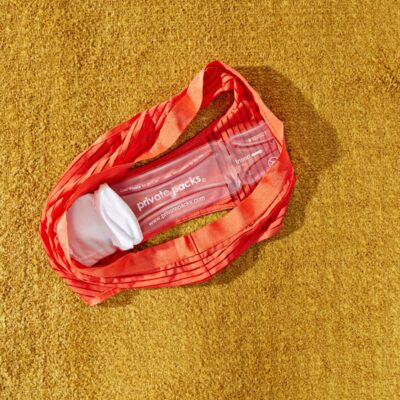
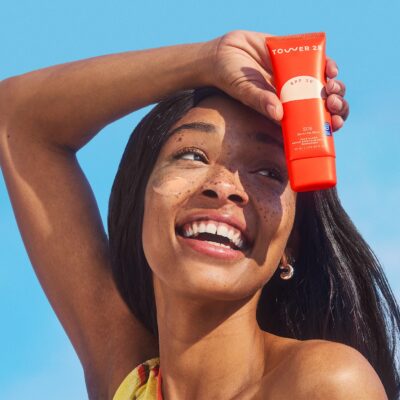
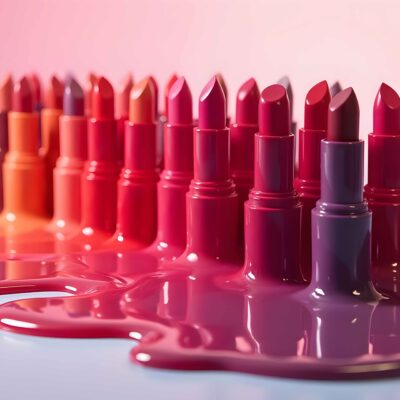
Leave a Reply
You must be logged in to post a comment.